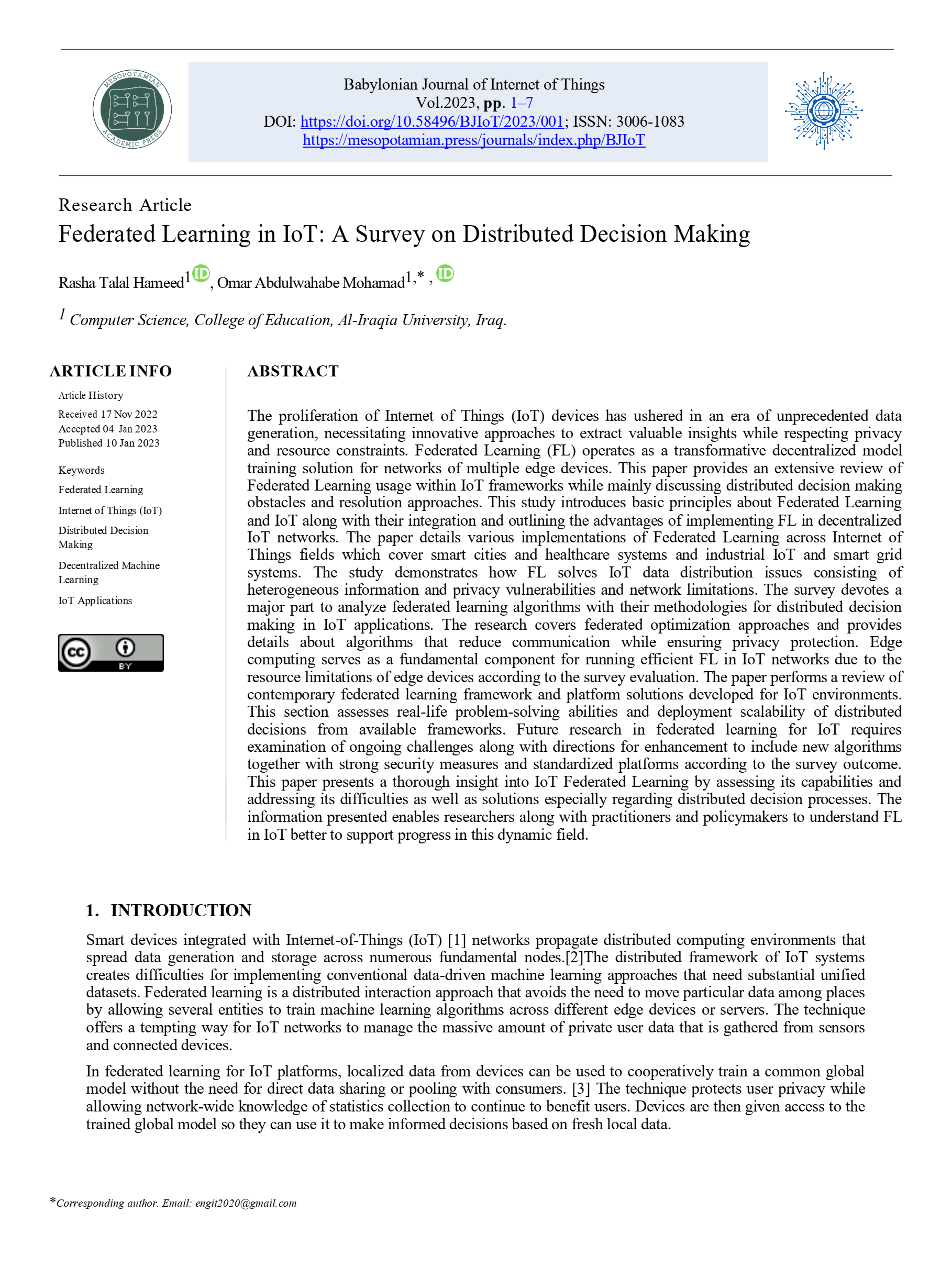Federated Learning in IoT: A Survey on Distributed Decision Making
Main Article Content
Abstract
The proliferation of Internet of Things (IoT) devices has ushered in an era of unprecedented data generation, necessitating innovative approaches to extract valuable insights while respecting privacy and resource constraints. Federated Learning (FL) operates as a transformative decentralized model training solution for networks of multiple edge devices. This paper provides an extensive review of Federated Learning usage within IoT frameworks while mainly discussing distributed decision making obstacles and resolution approaches. This study introduces basic principles about Federated Learning and IoT along with their integration and outlining the advantages of implementing FL in decentralized IoT networks. The paper details various implementations of Federated Learning across Internet of Things fields which cover smart cities and healthcare systems and industrial IoT and smart grid systems. The study demonstrates how FL solves IoT data distribution issues consisting of heterogeneous information and privacy vulnerabilities and network limitations. The survey devotes a major part to analyze federated learning algorithms with their methodologies for distributed decision making in IoT applications. The research covers federated optimization approaches and provides details about algorithms that reduce communication while ensuring privacy protection. Edge computing serves as a fundamental component for running efficient FL in IoT networks due to the resource limitations of edge devices according to the survey evaluation. The paper performs a review of contemporary federated learning framework and platform solutions developed for IoT environments. This section assesses real-life problem-solving abilities and deployment scalability of distributed decisions from available frameworks. Future research in federated learning for IoT requires examination of ongoing challenges along with directions for enhancement to include new algorithms together with strong security measures and standardized platforms according to the survey outcome. This paper presents a thorough insight into IoT Federated Learning by assessing its capabilities and addressing its difficulties as well as solutions especially regarding distributed decision processes. The information presented enables researchers along with practitioners and policymakers to understand FL in IoT better to support progress in this dynamic field.
Article Details
Issue
Section

This work is licensed under a Creative Commons Attribution 4.0 International License.
